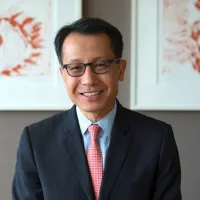Insight: Foundations for Economic Opportunity in Africa and the IIAG results
11 April, 2023
The 2022 IIAG depicts a mixed picture of Africa’s current status on governance. While some improvement has been made in certain categories, the overall trend is concerning, which might not be a surprise for those who have been closely following the continent’s economic development trend.
I am of the view that better governance is not the end but means and conditions for achieving the goal of overall social and economic progress which is fair and sustainable. Progress on governance and economic conditions and development go hand in hand, they often reinforce each other positively or negatively.
In the long term, Africa’s economic security and prosperity will require high-quality growth.
The global economy now faces strong headwinds – slowing growth, elevated inflation, and tightening financial conditions, against such a backdrop, Africa’s development prospects near-term are indeed uncertain and challenging. Ultimately in the long term, the region’s economic security and prosperity will require high-quality growth.
To finance Africa’s growth, we need to mobilise both internal and external capital resources. It is important to recognise that developing Africa’s own financial system is critical, as no one can finance their own development through external sources alone.
To finance Africa’s growth, we need to mobilise both internal and external capital resources. Developing Africa’s own financial system is critical.
In fact, Africa’s financial system has made good progress over the past decades, with more financial services (mainly credit) provided to more firms and households. Enabled by technology, we have seen more players and new products help broaden access to financial services. However, many challenges remain, borrowing costs are still high and terms are short, we are still far from an efficient, inclusive and deep African financial system which can finance households, business (especially SMEs) and infrastructure assets, which are key to drive economic growth.
For the foreseeable future, external capital continues to be extremely important to finance Africa’s growth, especially on infrastructure assets which require long term capital. Among various external financing products, although debt products are more readily available (with the market clearing terms and conditions) from commercial and multilateral lenders, most, if not all, African countries already have high debt levels and can hardly put more on their balance sheets. Hence, more long-term risk-taking equity capital from external sources is needed and with more equity capital, more debt can be leveraged.



